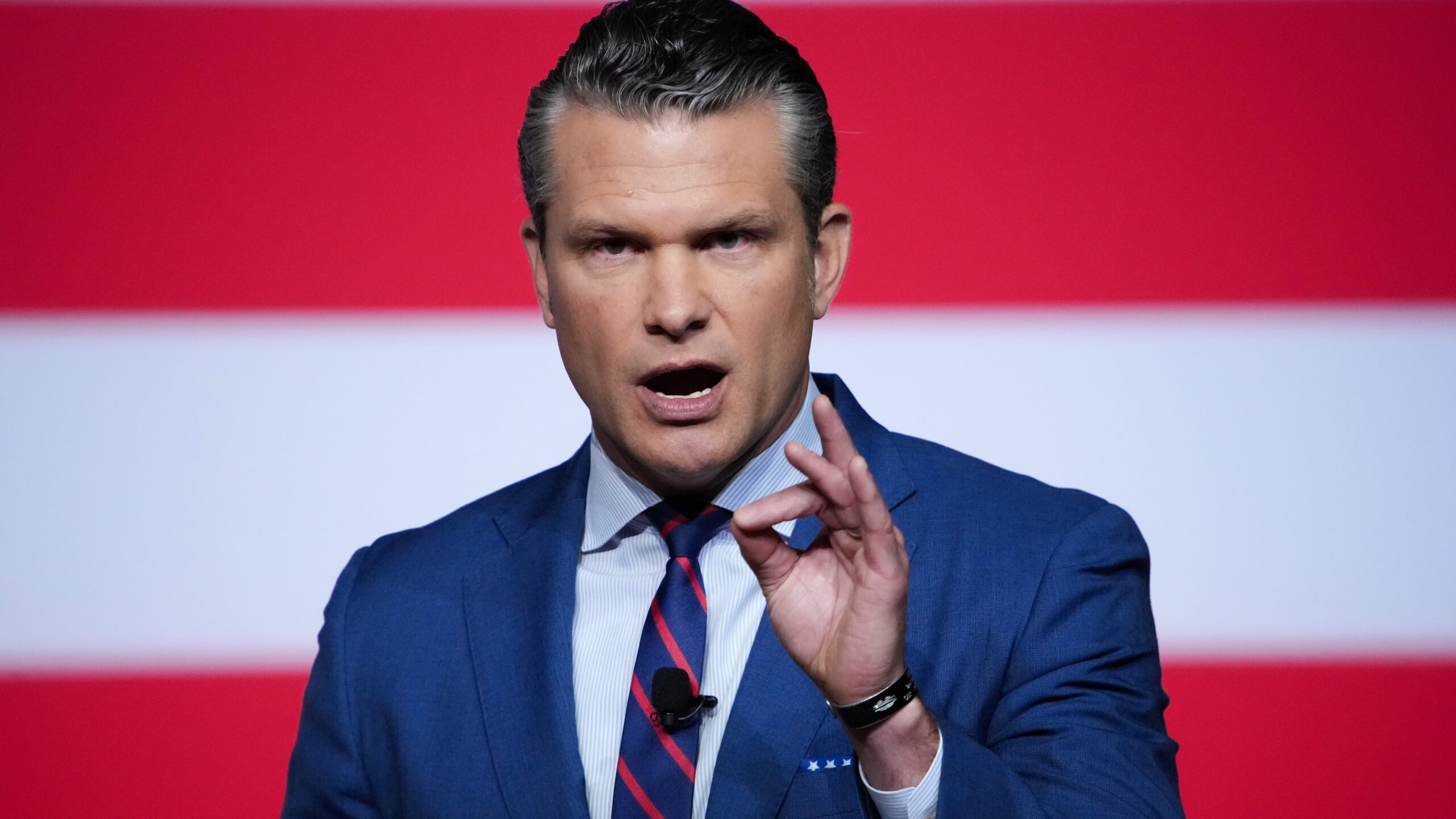Politics
Defense Secretary Orders National Guard to Form Rapid Response Forces

Defense Secretary Pete Hegseth has announced plans for the National Guard to establish “quick reaction” forces across all states and territories in the coming months. This initiative, according to a report from The Wall Street Journal, aims to prepare units for rapid deployment in response to civil unrest and riots. Each unit will consist of approximately 500 soldiers trained in nonlethal crowd control, handling detainees, and the use of equipment such as batons and stun guns.
The directive follows an order from President Donald Trump in August, instructing Hegseth to create a “National Guard Response Force” designed for swift mobilization. A memo dated September highlights the Pentagon’s commitment to respond to civil disturbances, stating, “The Department of War will be prepared to immediately provide support to federal, state and local law enforcement to address threats of civil disturbance.”
Deployment Timeline and Scope
These new forces will be deployed across all 50 states, along with territories such as Guam, Puerto Rico, and the Virgin Islands. The units are expected to mobilize quickly, with 25% of each force ready within hours, 50% within 12 hours, and the full 100% within 24 hours, as outlined in the memo reviewed by the Journal.
The president has expressed a desire to utilize the National Guard against protests, particularly in cities governed by Democrats, including Los Angeles, Chicago, and Portland. In previous instances, Trump has ordered the National Guard into Washington D.C. to address what he described as escalating crime, although troops were ultimately engaged in non-critical activities.
Concerns regarding the militarization of urban areas have sparked debate among military personnel. Illinois National Guard Captain Dylan Blaha publicly criticized the establishment of these quick reaction forces. In an interview with Jen Psaki on MSNBC, Blaha referred to them as “something we don’t need in our communities” and encouraged fellow soldiers to resist unlawful orders.
Legal Context and Controversy
The ongoing discussions about the legality of deploying the National Guard in response to civil protests remain contentious. President Trump has suggested he could invoke the Insurrection Act to justify military action in cities, claiming, “If I want to enact a certain act, I’m allowed to do it.” He maintains that he has not pursued this option because the current situation is manageable without it.
Blaha acknowledged the complexities of resisting orders that may be deemed unlawful post-factum but emphasized the importance of standing with the public. He stated, “I’ve had a lot of members reach out to me in private… asking me for advice on what to do if they’re called to deploy, and I always tell them, ‘Don’t go against the American people, and don’t do anything that you know for certain is unlawful.’”
As the National Guard prepares for this significant transformation, the implications for civil liberties and community relations remain under scrutiny. The Pentagon has yet to provide additional comments regarding the establishment of these forces or their intended operations.
-

 Lifestyle3 months ago
Lifestyle3 months agoLibraries Challenge Rising E-Book Costs Amid Growing Demand
-

 Sports3 months ago
Sports3 months agoTyreek Hill Responds to Tua Tagovailoa’s Comments on Team Dynamics
-

 Sports3 months ago
Sports3 months agoLiverpool Secures Agreement to Sign Young Striker Will Wright
-

 Lifestyle3 months ago
Lifestyle3 months agoSave Your Split Tomatoes: Expert Tips for Gardeners
-

 Lifestyle3 months ago
Lifestyle3 months agoPrincess Beatrice’s Daughter Athena Joins Siblings at London Parade
-

 World3 months ago
World3 months agoWinter Storms Lash New South Wales with Snow, Flood Risks
-

 Science3 months ago
Science3 months agoTrump Administration Moves to Repeal Key Climate Regulation
-

 Business3 months ago
Business3 months agoSoFi Technologies Shares Slip 2% Following Insider Stock Sale
-

 Science2 months ago
Science2 months agoSan Francisco Hosts Unique Contest to Identify “Performative Males”
-

 Science3 months ago
Science3 months agoNew Tool Reveals Link Between Horse Coat Condition and Parasites
-

 Sports3 months ago
Sports3 months agoElon Musk Sculpture Travels From Utah to Yosemite National Park
-

 Science3 months ago
Science3 months agoNew Study Confirms Humans Transported Stonehenge Bluestones









